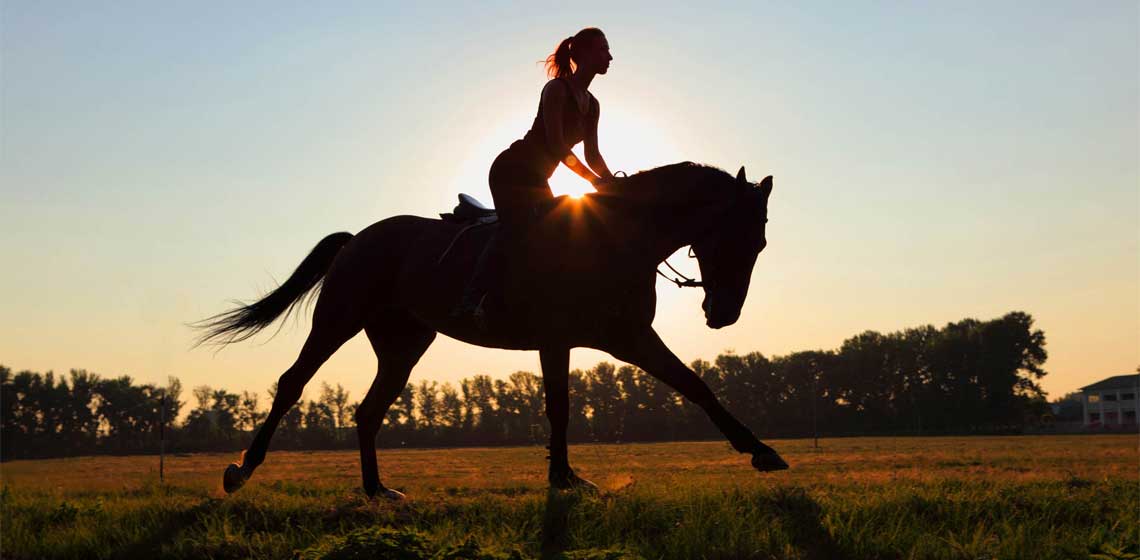The journey from horseback riding enthusiast to professional jockey is a path paved with passion, dedication, and an unwavering commitment to the equestrian arts. For many, horseback riding begins as a recreational activity, a way to connect with these majestic animals and enjoy the great outdoors. However, for a select few, this hobby evolves into a calling, leading them down the career path of becoming a professional jockey. This transformation doesn’t happen overnight and involves much more than learning to ride. It’s a comprehensive journey through the worlds of equine care, competitive riding, and ultimately, mastering the racetrack. Here are three pivotal aspects of transitioning from casual riding to professional jockeying.
1. Building a Foundation in Horseback Riding
The first step on the path to becoming a jockey is gaining a solid foundation in horseback riding. This begins with learning the basics of riding and horse care, usually through lessons at a local barn or equestrian center. Aspiring jockeys must become proficient in various riding styles, though most will focus on English riding, which includes the racing style used in competition. This phase is about more than just riding; it’s about developing a deep bond with horses, understanding their behavior and communication, and learning how to care for them.
Riders must also commit to physical fitness and a deep understanding of equine anatomy and physiology. Horseback riding is physically demanding, requiring riders to have strong core muscles, balance, and stamina. Moreover, knowledge of horse health, nutrition, and injury prevention is crucial for anyone looking to work professionally with horses. This foundational stage is critical for setting aspiring jockeys on the right path, emphasizing the importance of comprehensive equine education and physical preparedness.
2. Gaining Competitive Experience
Transitioning from recreational riding to professional jockeying necessitates gaining competitive experience. This often means participating in amateur races, horse shows, and other competitive events. Competing allows riders to hone their skills in a race environment, understand the dynamics of competitive racing, and learn how to strategize and make split-second decisions during a race. It’s also an opportunity to get noticed by trainers and owners who might be looking for talented jockeys to join their teams.
Success in competition requires dedication and often leads to specialization in a specific type of racing, such as flat racing or steeplechase. Aspiring jockeys must learn to analyze racecourses, understand the importance of pacing, and develop techniques for guiding their horses efficiently and effectively through a race. This stage of the journey is as much about building a reputation and network within the equestrian community as it is about mastering the art of racing.
3. Professional Training and Licensing
The final step towards becoming a professional jockey is undergoing formal training and obtaining the necessary licensing. Many countries have specific schools or training programs designed to prepare jockeys for their careers, focusing on advanced racing techniques, sportsmanship, and the legal and business aspects of racing. In the United States, for example, prospective jockeys attend jockey training schools or apprentice with seasoned jockeys to gain the knowledge and experience required to compete at a professional level.
Obtaining a jockey’s license is a rigorous process that involves meeting specific age, weight, and fitness requirements, passing a background check, and demonstrating riding proficiency through tests and observed races. Many jockeys begin their careers as apprentice jockeys, where they race without carrying the full weight penalties against more experienced competitors. This apprenticeship is an invaluable phase, offering on-the-job training under the guidance of mentor jockeys and trainers.
Embarking on a career as a professional jockey is a challenging journey that requires more than just a love for horseback riding. It demands a comprehensive education in equine care, competitive experience, and the completion of formal training and licensing. For those passionate about horse racing and dedicated to the sport, becoming a jockey offers a rewarding career path filled with excitement, competition, and the unparalleled bond between horse and rider.
4. Mastering the Mental Game
Beyond the physical demands and technical skills required to become a jockey, mastering the mental game is crucial. The psychological resilience needed to cope with the highs and lows of racing, from thrilling victories to challenging defeats, cannot be overstated. Aspiring jockeys must develop a strong mental fortitude to handle the pressures of competition, the expectations of trainers and owners, and the inherent risks of the sport. Mental preparation involves setting realistic goals, maintaining focus under pressure, and managing stress effectively. It also includes the ability to make rapid decisions during races, a skill that separates the good from the great in the world of horse racing. This psychological aspect of training is essential for those aspiring to transition from amateur riders to professional jockeys, ensuring they are as prepared mentally as they are physically.
5. Joining Prestigious Competitions
For many jockeys, the ultimate goal is to compete in prestigious races that draw the attention of the global horse racing community. Participation in high-profile competitions, such as ImperialCup Day, not only offers the chance to win significant prizes but also serves as a benchmark for a jockey’s skills and reputation. Achieving success in such events can catapult a jockey’s career forward, opening doors to international racing opportunities and attracting offers from leading trainers and owners.
Imperial Cup Day, with its rich history and status in the racing calendar, is a prime example of a competition that aspiring jockeys dream of joining. Success at this level requires more than just excellent riding skills; it demands an in-depth understanding of racing strategy, a profound connection with one’s mount, and the ability to perform under the intense scrutiny of the racing world. Competing at such a level also provides invaluable experience, exposing jockeys to the rigors of top-tier competition and preparing them for future challenges.
6. Continuous Learning and Adaptation
The path to becoming a professional jockey is marked by continuous learning and adaptation. The world of horse racing is always evolving, with new training methods, technologies, and strategies continually emerging. Successful jockeys are those who remain students of the sport throughout their careers, always seeking to improve their knowledge and skills. This includes staying updated on the latest developments in equine science, nutrition, and welfare, as well as adapting to changes in racing regulations and formats.
Moreover, the ability to learn from each race, whether a win or a loss, is crucial for long-term success. Reflecting on one’s performance, seeking feedback from trainers and peers, and analyzing race footage can provide insights that drive improvement. This mindset of continuous learning and self-reflection ensures that jockeys can adapt to the ever-changing landscape of horse racing, maintaining a competitive edge throughout their careers.
Embarking on the journey from horseback riding enthusiast to professional jockey is a multifaceted process that extends beyond physical capabilities to include mental resilience, participation in prestigious competitions, and a commitment to lifelong learning. For those who are dedicated and willing to navigate the complexities of this demanding career, the rewards of becoming a professional jockey are unparalleled, offering a life filled with passion, excitement, and the noble companionship of horses.














